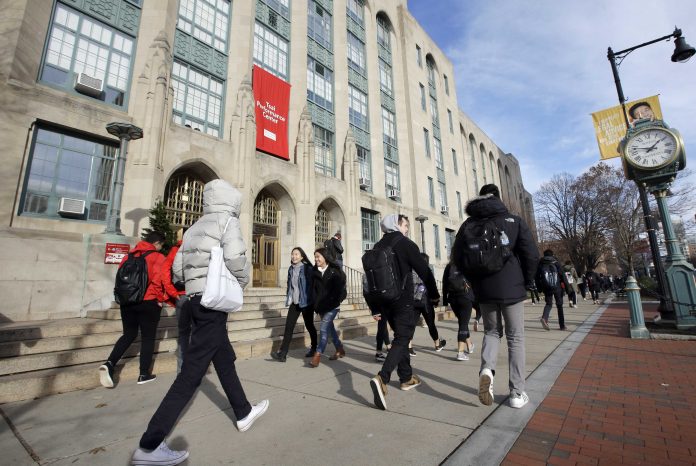
By ANNA HELHOSKI of NerdWallet
Humanities majors are more than a punchline. Not everyone can or wants to be a STEM major, and the world would be a poorer place if they were.
To have great things to read, music that inspires, perspectives that challenge us — to have a sense of reward and meaning in life — we must have students who pursue college degrees that don’t lead directly to a big paycheck.
That turns the pursuit of intellectual curiosity and artistic appreciation into a balancing act: the likelihood you’ll make a good living versus the debt you incur along the way.
“I encourage students to find this balance between what they like and what pays,” says Nicole Smith, research professor and chief economist at the Georgetown University Center for Education and the Workforce. “I’m not discounting how beneficial these positions are to our society as a whole, but if you can’t pay back your student loan, you’ll be in a serious state,” Smith says.
Liberal arts grads face longer odds compared with science, technology, engineering and mathematics degrees, but a well-chosen humanities major doesn’t have to be a vow of poverty.
HOW LONG DOES IT TAKE TO RECOUP WHAT YOU PAID?
To assess the value of earning a specific degree at a specific institution, consider the concept of price-to-earnings premium, spearheaded by Michael Itzkowitz, senior fellow of higher education at Third Way, a center-left think tank.
It measures what you pay out of pocket, including loans, against the amount you’ll earn each year above the earnings of a typical high school graduate. The results show how quickly you can get a return on investment in your college major.
The majority of liberal arts degrees lead to a “pretty good ROI,” says Itzkowitz, but the specific program you graduate with and the type of degree you earn will affect individual outcomes.
The bachelor’s degree programs that allow graduates to recoup their costs within five years or less include what you’d expect: Registered nursing, electrical engineering and dental assistants all make the list.
Among the programs with no economic ROI at all: drama, fine arts and anthropology.
Itzkowitz says the majority of college programs enable students to recoup costs within 10 years or less. “College is still worth it the vast majority of the time,” he says.
Unfortunately, his research also found nearly one-quarter of all college programs of study show graduates failing to recoup their costs in the 20 years after graduation.
There are several tools that can help you compare data on costs, earnings and debt:
— The College Scorecard, a data tool from the U.S. Department of Education.
— An interactive map of price-to-earnings premiums from Third Way.
— The Buyer Beware tool from the Georgetown Center for Education and the Workforce.
Of course, education and major aren’t the only predictors of income. Your wages will also be affected by where you live, your gender and race, whether you work in the public or private sector, and your experience level.
SHOULD YOU GET A GRADUATE DEGREE?
Your humanities degree could go much further if you get an advanced degree — generally, the more education you have, the greater your earnings, according to Bureau of Labor Statistics data.
But you should continue to weigh cost versus benefit since it’s also easier to rack up debt. A graduate degree may increase your earning potential, or it may just increase your debt.
For example, if you majored in liberal arts for your bachelor’s degree you can expect a median annual wage of $50,000, according to the Bureau of Labor Statistics.
But if you get a graduate degree in law, taking on more debt, you could earn a median of $126,930. A master’s of fine arts, on the other hand, is unlikely to yield higher earnings: The annual median wage is $42,000.
Your other options could include a minor in a field with higher earnings, an internship to get on-the-job experience or finding less-expensive graduate programs if your intended field requires it.
If you’re taking on additional student debt, remember that the federal government offers payment plans that tie the size of your payment to your income. Most private loans don’t.
WHAT ARE YOUR OPTIONS IF YOUR EARNINGS ARE LOW?
If you’re already working in a low-paying field and you have student loan debt, look at how you can lower payments or discharge your debt.
If you’re having trouble making payments, consider enrolling in an income-driven repayment plan, which ties payments to your monthly income. Your payment amounts will increase as your earnings do, too.
Those working in public sector fields should learn the ins and outs of public service loan forgiveness, a red-tape-laden process of getting your loans discharged after 10 years of payments on a qualifying payment plan while working full time in a qualifying field.



















